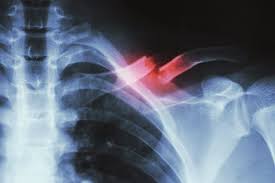- Home
- Editorial
- News
- Practice Guidelines
- Anesthesiology Guidelines
- Cancer Guidelines
- Cardiac Sciences Guidelines
- Critical Care Guidelines
- Dentistry Guidelines
- Dermatology Guidelines
- Diabetes and Endo Guidelines
- Diagnostics Guidelines
- ENT Guidelines
- Featured Practice Guidelines
- Gastroenterology Guidelines
- Geriatrics Guidelines
- Medicine Guidelines
- Nephrology Guidelines
- Neurosciences Guidelines
- Obs and Gynae Guidelines
- Ophthalmology Guidelines
- Orthopaedics Guidelines
- Paediatrics Guidelines
- Psychiatry Guidelines
- Pulmonology Guidelines
- Radiology Guidelines
- Surgery Guidelines
- Urology Guidelines
PPIs use in infancy for reflux Increases childhood fracture risk

Proton pump inhibitors (PPIs) are linked to an increased risk of bone fractures in adults, but it is not known whether this is also the case in children.
In recent years, doctors have been increasingly prescribing powerful stomach-acid suppressors, such as proton pump inhibitors (PPIs) and histamine2 receptor antagonists (H2-blockers), to otherwise healthy infants with GER and to sooth the irritable children. Lately, safety concerns have emerged with new findings that suggest giving the drugs to infants younger than 6 months of age is associated with a higher risk of bone fractures later in childhood.
A New research presented at the 2017 Pediatric Academic Societies Meeting found infants prescribed antacids to manage acid reflux, or spitting up, under age 1 had more bone fractures later in childhood. Researchers examined the records of 874,447 healthy children born within the Military Healthcare System (MHS) from 2001 to 2013 who received care within the system for at least two years. They found approximately 10% of the children were prescribed antacids in the first year of life, including H2-blockers such as ranitidine (Zantac) and famotidine (Pepsid) as well as PPIs such as omeprazole and pantoprazole . A small percentage was prescribed both. Children who used PPIs had a 22% increased likelihood of fracture, while children who used both PPIs and H2-blockers had a 31% increased likelihood of fracture. Use of H2-blockers was not associated with an immediate increase in factures, the study found, but there was an increased likelihood of fracture with time.In addition, the number of bone fractures children experienced increased with the number of days they took these medications.The researchers concluded that PPIs should only be used for serious cases of gastroesophageal reflux disease in infants
GER is a common condition that affects roughly 40% to 65%t of all infants. It usually begins at approximately 2 to 3 weeks of life and peaks between 4 to 5 months. In most babies, GER disappears by about 1 year of age as the upper digestive tract functionally matures. The American Academy of Pediatrics believes it is important for all pediatric health care providers to be able to properly identify and treat children with reflux symptoms, and to distinguish GER from more worrisome disorders so as to avoid unnecessary treatments.
Abstract available at: https://registration.pas-meeting.org/2017/reports/rptPAS17_abstract.asp?abstract_final_id=2305.4

Disclaimer: This site is primarily intended for healthcare professionals. Any content/information on this website does not replace the advice of medical and/or health professionals and should not be construed as medical/diagnostic advice/endorsement or prescription. Use of this site is subject to our terms of use, privacy policy, advertisement policy. © 2020 Minerva Medical Treatment Pvt Ltd